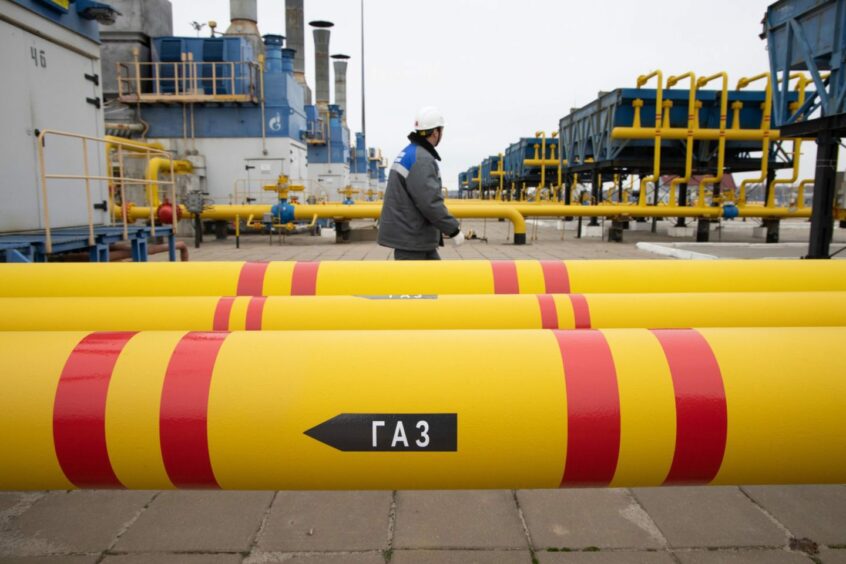
Europe’s energy security took another hit after Russian crude flows through Ukraine to Hungary, Slovakia and the Czech Republic were halted because sanctions prevented payment of a transit fee.
While Russia’s oil-pipeline operator Transneft PJSC said there was no effect on the northern leg of the Druzhba pipeline, which runs through Belarus to Poland and Germany, the southern portion of the link was shut down on Aug. 4. Oil jumped in London, with Brent crude 1.3% higher at $97.90 a barrel as of 1:12 p.m.
Russia has already blamed international sanctions for curbing flows of natural gas to Europe through the Nord Stream pipeline. Similar disruption to oil flows would deepen the region’s energy crisis, adding to pressure on inflation and amplifying the risk of recession.
Hungary’s fuel supplies would be particularly vulnerable, and Budapest-based refiner Mol Nyrt. said it had initiated talks aimed at restarting the crude flows by paying the transit fee to Ukraine itself.
“Although Mol has enough reserves for several weeks, it is working on a solution,” the refiner said in a statement.
Ukrtransnafta JSC, which operates Ukraine’s oil pipeline network and oversees the transit of crude via the southern leg of the Druzhba link, “stopped providing oil-transportation services” through its territory on Aug. 4, Transneft said in a statement on Tuesday. There was no immediate comment from Ukrtransnafta.
The contract between Transneft and Ukrtransnafta requires 100% prepayment for transit flows. While the Russian pipeline operator paid the August transit fee on July 22, it received the money back on July 28, Transneft said.
The European banks involved in the transaction are not authorized to make their own decisions on cross-border payments from Russia due to sanctions and need approvals from their national regulators, according to Transneft.
The Russian oil-pipeline operator said it has appealed “to an authorized bank for further transfer of information to the European regulator in order to obtain permission to conduct settlements under an agreement with Ukrtransnafta.” It is also looking at alternative ways to transfer funds.
Fuel Disruption
Failure to resolve the payment issue would carry particular risks for Hungary, where Prime Minister Viktor Orban’s imposition of a fuel price cap had already prompted some oil companies to halt imports to avoid taking losses.
Mol Chairman Zsolt Hernadi has repeatedly warned of a potential supply crunch due to the price cap, which is in place until Oct. 1. Mol shares fell as much as 5.6% on Tuesday while the forint fell as much as 1% against the euro, the biggest drop in emerging markets.
The best-case scenario is that the financial dispute is resolved within days, said Erste Bank analyst Tamas Pletser. If the halt is prolonged, Hungarian refiner Mol has fuel reserves for a couple of weeks, but beyond that the country would have to tap its strategic oil reserves, he said.
Any reduction in fuel processing at refineries in Hungary would come at a bad time, because supplies are also tight in neighboring countries.
Southern Germany, Austria and Switzerland are grappling with curtailed fuel supplies as disruption to production at oil refineries coincides with a squeeze in deliveries via the Rhine river. Like Hungary, Switzerland has already tapped emergency fuel stocks.
Austria’s only refinery in Vienna is barely operating after an incident and OMV AG has been force to suspend deliveries of diesel and heating oil from storage sites in southern Germany until its Burghausen refinery in the country returns from maintenance.
Recommended for you
